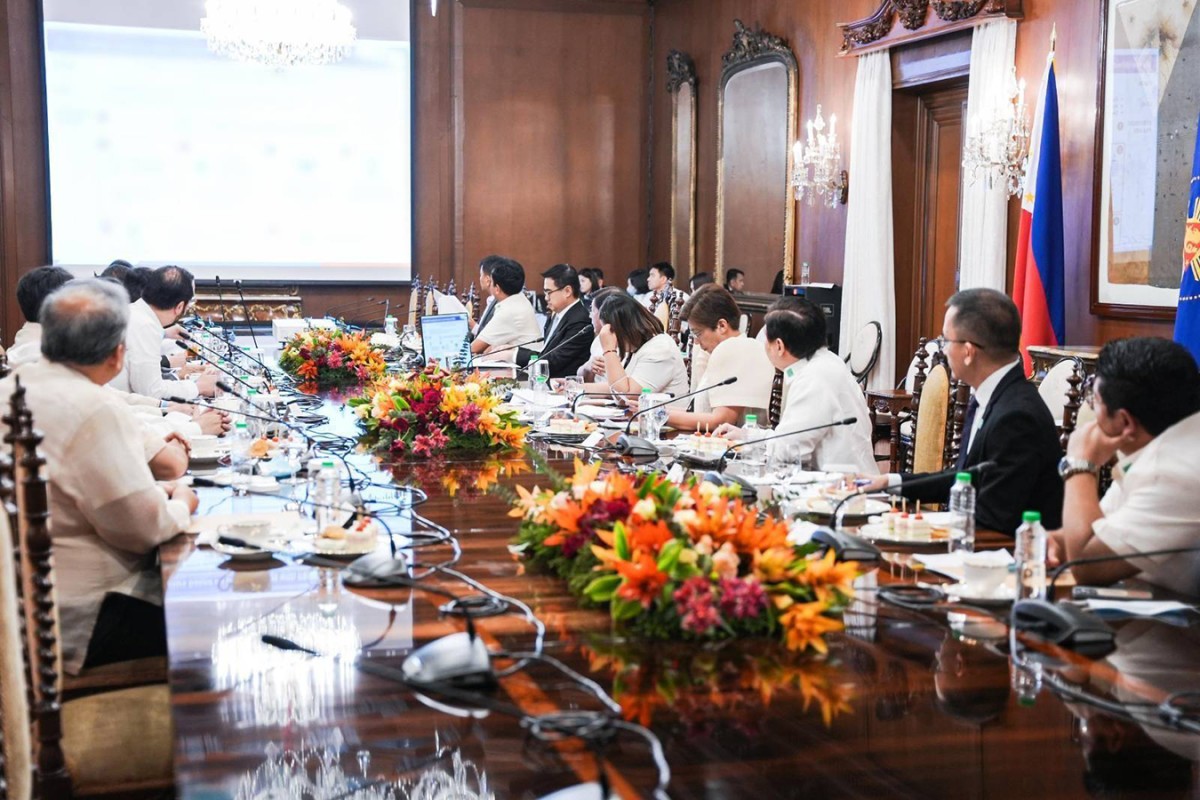QUEZON CITY (PIA) -- President Ferdinand R. Marcos Jr., as one of the measures to improve healthcare in the Philippines, urges concerned government agencies to help in enhancing local drug manufacturing in the Philippines during a meeting with the Private Sector Advisory Council (PSAC) healthcare sector group in Malacañang Palace on Wednesday, March 29, 2023.
The Chief Executive further instructs to secure a stockpile of medicine in preparation for any emergency.
“Let’s maximize the local production. The initial reason why this came up is the supply problems that we encountered during the lockdowns so we need to be prepared. We should be able to produce the local supply of essential medicines,” the President said.
The Department of Health (DOH) and Food and Drug Administration (FDA), in response, will be working with the private sector to identify medicines that can be produced locally and maximize the utilization of the capacity of local pharmaceutical manufacturers, particularly the production of basic medicines for poor Filipino patients such as anti-tuberculosis drugs.
The Advisory Council will also continue to discover new technologies in healthcare that can be used for geographically isolated and disadvantaged areas that may be recommended to DOH and PhilHealth for implementation.
They will also study the feasibility of establishing remote diagnostics centers and assess new medical technologies and their costs.
Moreover, in the efforts to lower drug prices and improve access to medicines, the PSAC also pursued the strengthening of the FDA through the digitalization of its information systems (IS).
This project includes the upgrading of ten (10) IS, such as the electronic certificate of the product registration information system. Once digitalized, other systems, such as new chemical entity renewal, certificate of listing of the identical drug product (CLIDP), and post-marketing surveillance, shall follow.
President Marcos also directs the Commission on Higher Education (CHED) to address the shortage of nurses due to migration which has been affecting the delivery of effective healthcare in the country.
In response, CHED Chairperson Prospero de Vera III said it is already carrying out interventions to address the shortage of nurses. This includes retooling board non-passers, adopting a nursing curriculum with exit credentials, redirecting non-practicing nurses, and conducting exchange programs with other countries.
“Under the nursing curriculum with exit credentials, students could have several options: exit at the end of Level I or II, obtain the certificate or diploma in Nursing, or choose to continue and finish the four-year nursing program to become a registered nurse,” Chair De Vera reported.
CHED is also working on a flexible short-term Master’s Program to address the lack of instructors in nursing and medical schools.
The Department of Health (DOH), on the other hand, is also assessing the status of the proposed legislation on the Magna Carta for Public Health Care Workers and the Philippine Nursing Act while doing a study on the standardization of salaries of nurses, doctors, and healthcare workers.
Previously, the administration has also launched the Philippine Multisectoral Nutrition Project (PMNP) to achieve key impacts on the health and nutrition of every Filipino child, as well as to strengthen the LGUs’ capacities in terms of primary healthcare delivery of maternal and child health services.
One of the priority agendas of the Marcos Administration is to provide healthcare for every Filipino. Hence, it continues to find ways and implement measures to improve the healthcare system in the country. (KSAA – PIA CPSD)





